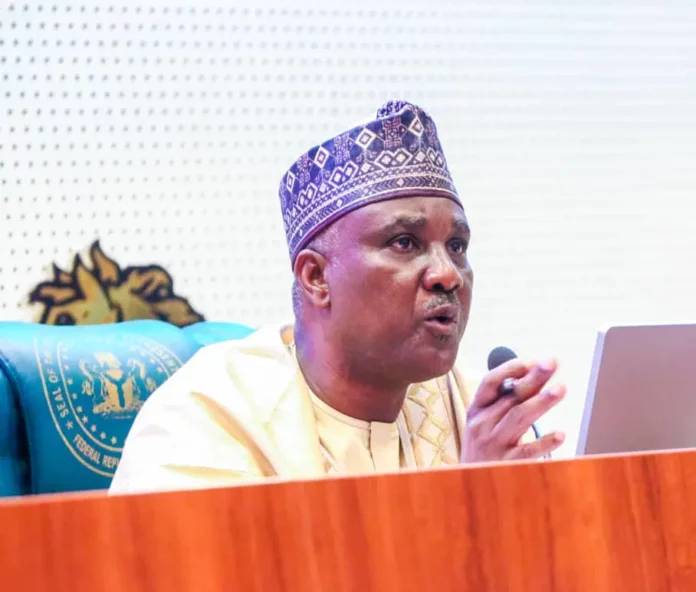The Speaker of the House of Representatives, Rt. Hon. Abbas Tajudeen, has raised the alarm over Nigeria’s growing debt burden, warning that the current borrowing trend is dangerous and must be checked to protect the country’s future.
Speaking on Monday at the 11th Annual Conference and General Assembly of the West Africa Association of Public Accounts Committees (WAAPAC) held in Abuja, Abbas said Nigeria’s total public debt had ballooned to N149.39 trillion as of the first quarter of 2025.
This figure, equivalent to about US$97 billion, is a sharp rise from N121.7 trillion in 2024. Even more troubling, the Speaker revealed, is that the country’s debt-to-GDP ratio has climbed to 52 percent, far above the 40 percent ceiling allowed by Nigerian fiscal laws.
“As at the first quarter of 2025, Nigeria’s total public debt stood at N149.39 trillion. This represents a sharp rise from N121.7 trillion the previous year, underscoring how quickly the burden has grown,” Abbas said. “Even more concerning is the debt-to-GDP ratio, which now stands at roughly 52 percent, well above the statutory ceiling of 40 percent set by our own laws.”
Abbas warned that the situation, if left unchecked, poses a serious threat to fiscal sustainability and could result in Nigeria spending more on debt servicing than on critical sectors like healthcare, education, and infrastructure.
The Speaker stressed the need for transparent borrowing practices, stronger parliamentary oversight, and reforms to ensure that loans are used for productive and impactful projects.
He pointed out that many African countries are already struggling with high debt servicing costs and warned that Nigeria must not fall into the same trap.
“We must ensure that our borrowing is targeted and responsible — directed at sectors like infrastructure, education, healthcare, and industry, which can create jobs and reduce poverty,” he said. “Debt incurred for consumption or through corruption must be rejected.”
To address these concerns, Abbas announced a new plan to establish a West African Parliamentary Debt Oversight Framework under WAAPAC. This regional body will aim to harmonise debt reporting across West Africa, promote transparency, and equip parliaments with tools to monitor government borrowing.
The Speaker also revealed that a capacity-building programme is in the works to help parliamentarians across the sub-region improve their understanding of debt sustainability analysis and fiscal risk management.
“Our goal is to ensure that parliaments are not just bystanders but active participants in holding governments accountable for how loans are secured and used,” Abbas said.
Abbas reaffirmed the commitment of the 10th House of Representatives to openness and accountability, especially in matters of public finance.
He said the House, under its Open Parliament policy, will subject all major borrowing proposals to public hearings, allowing citizens and civil society to scrutinise and comment on the plans before approval.
“We will make simplified debt reports available to Nigerians so they can understand the true state of our national finances,” he added.

